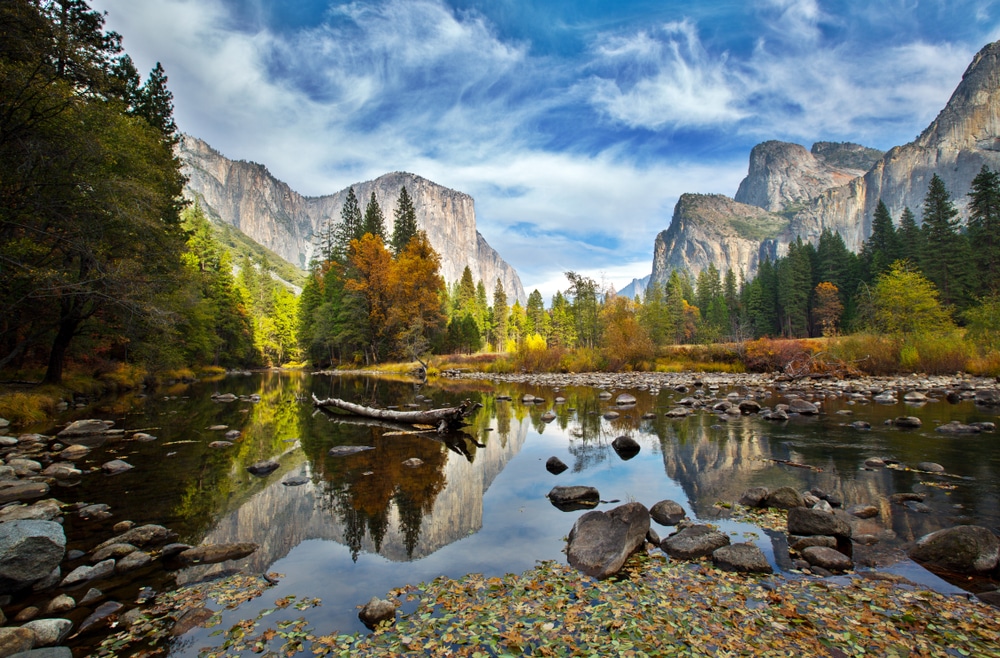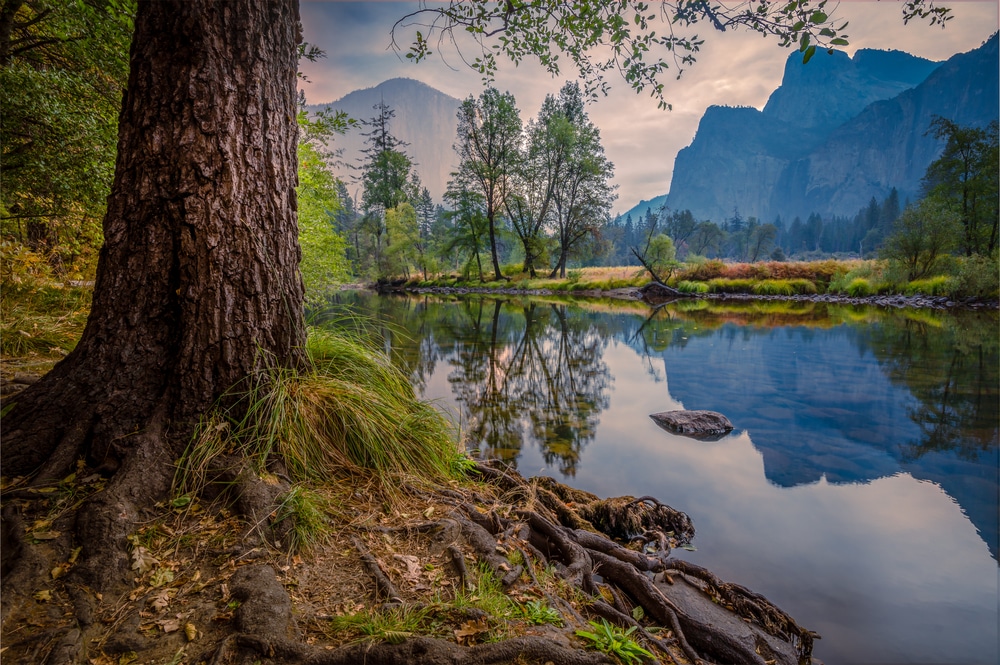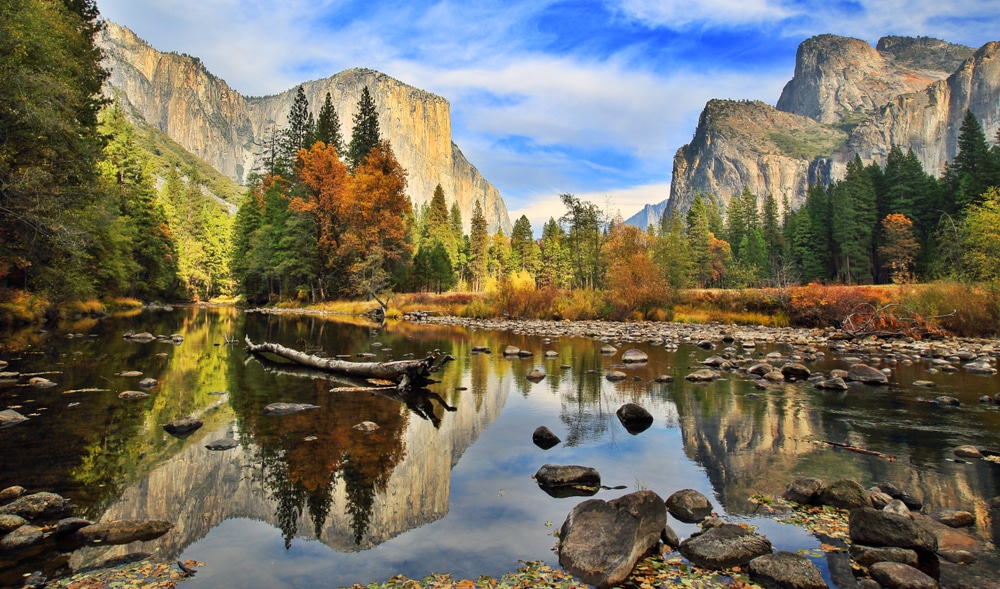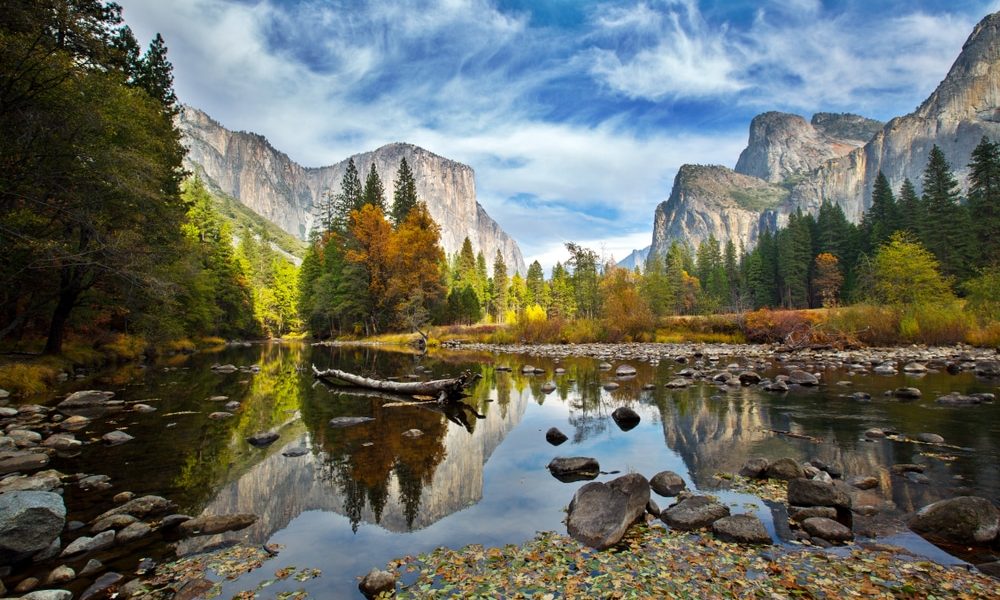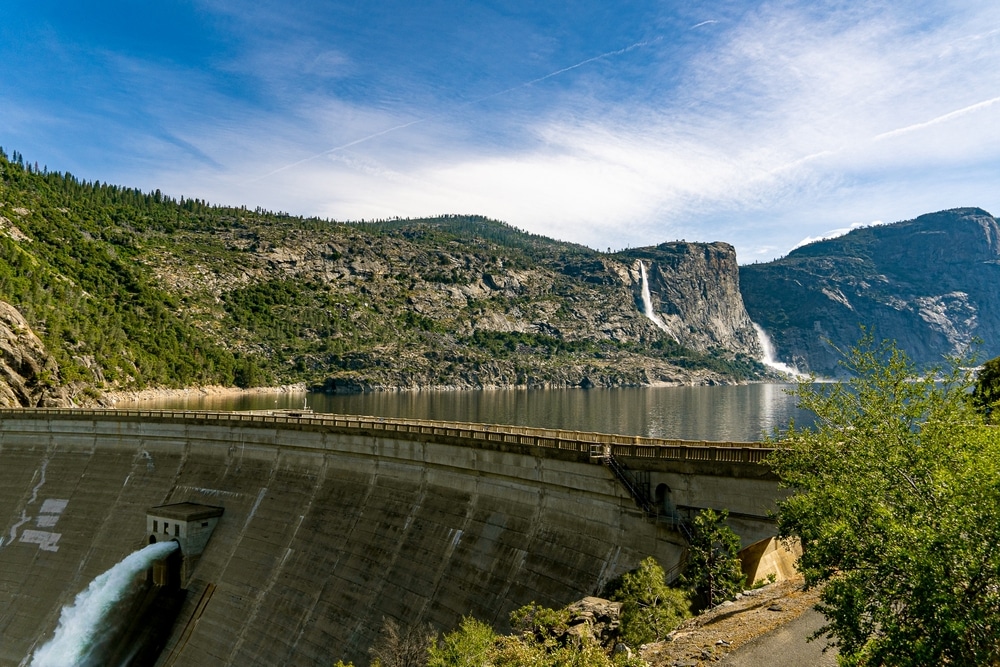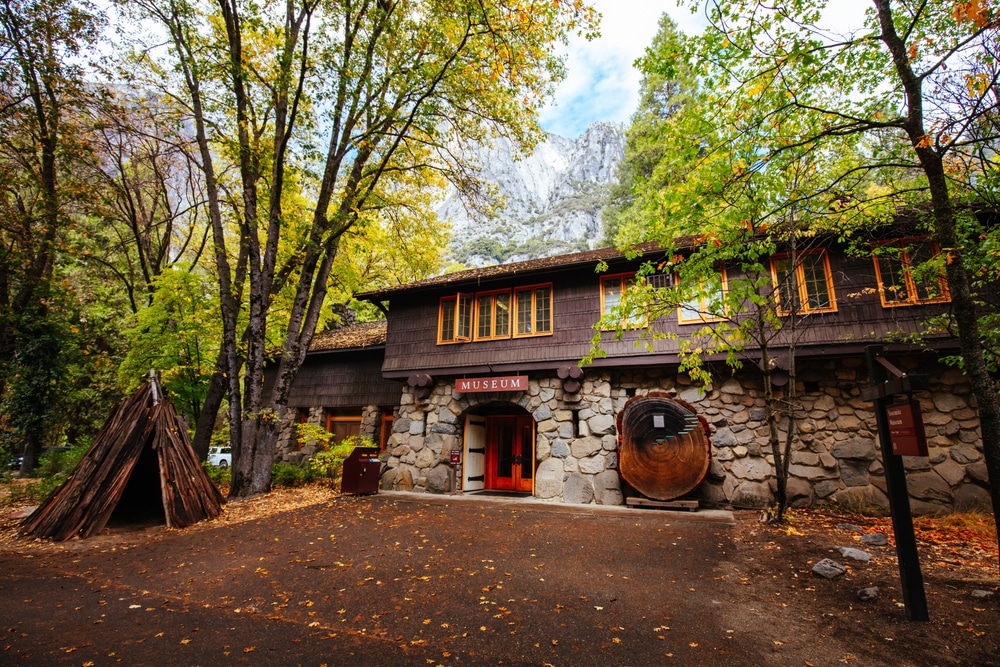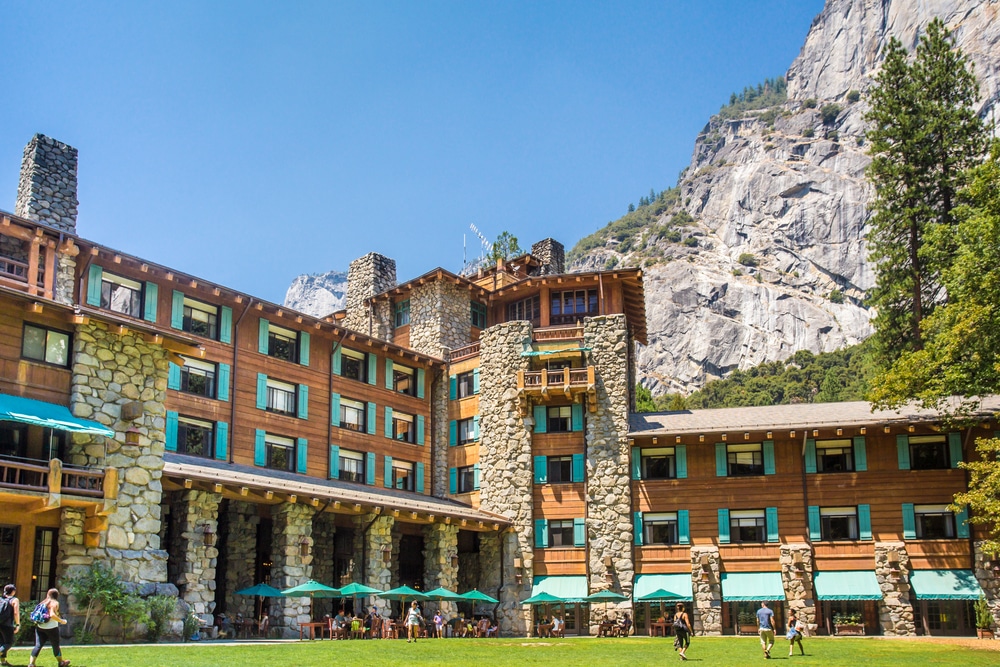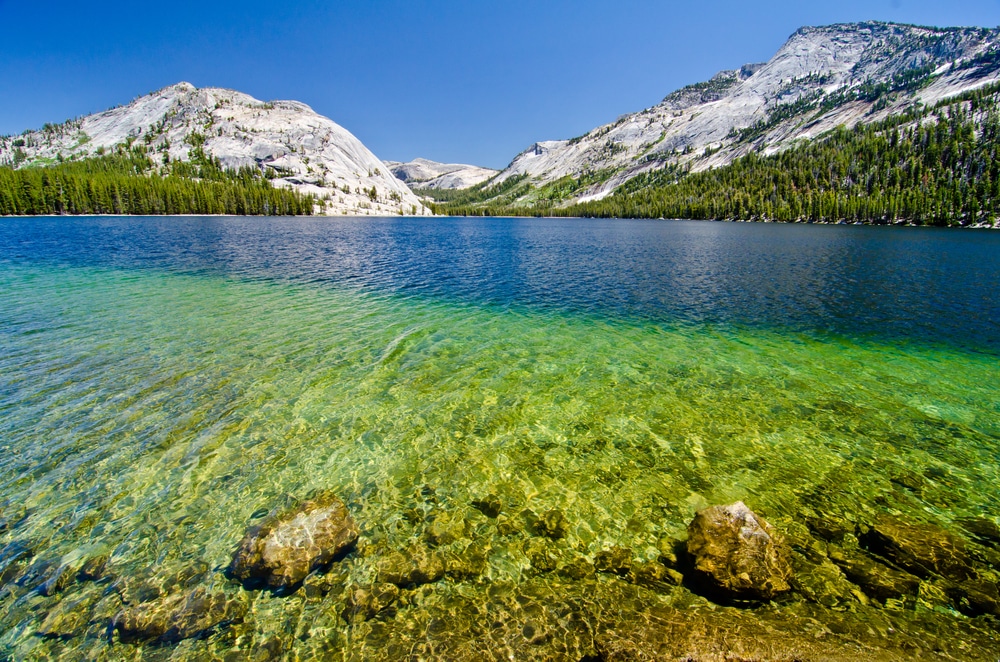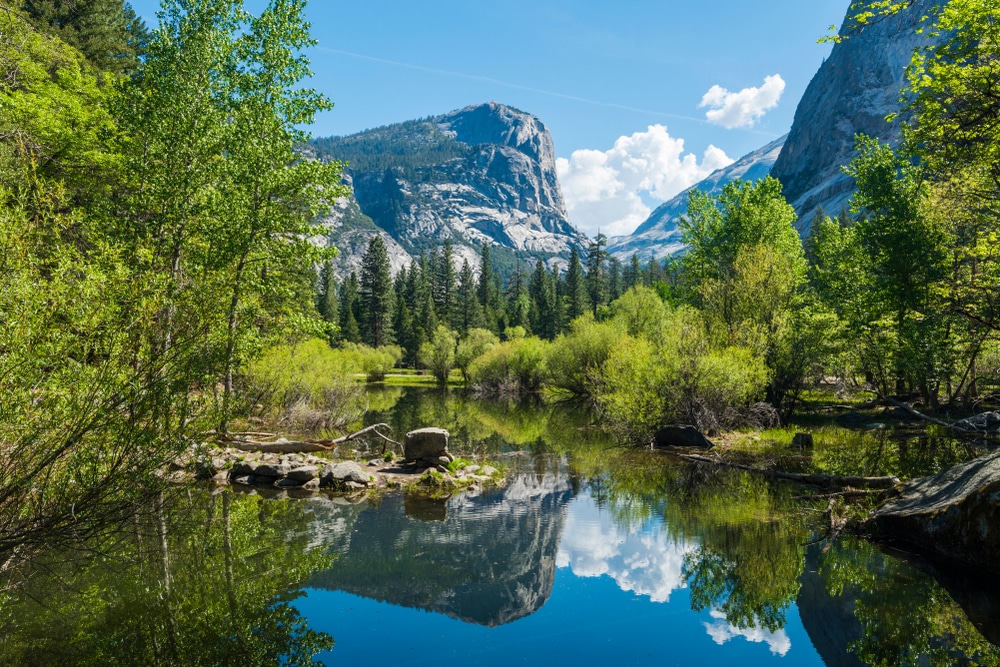The Merced River is a central feature of Yosemite National Park, flowing through Yosemite Valley and providing a dynamic landscape that changes with the seasons. Originating in the high Sierra Nevada, it is both a critical habitat for wildlife and a popular site for recreational activities. The river’s journey through the park offers visitors a chance to experience Yosemite’s renowned natural beauty from a variety of perspectives.
Overview of the Merced River
Location: The Merced River flows from the southeastern end of Yosemite National Park, through Yosemite Valley, and continues westward out of the park boundaries.
Length: The river stretches for approximately 145 miles from its source in the Sierra Nevada to its confluence with the San Joaquin River.
Key Features
Scenic Beauty
- The river is known for its stunning views, especially in Yosemite Valley where it reflects the towering granite cliffs and waterfalls.
Wildlife Habitat
- The Merced River provides habitat for a diverse array of species, including fish, amphibians, and birds, contributing to the rich biodiversity of Yosemite.
Activities on the Merced River
Rafting and Kayaking
- During the spring and early summer, rafting and kayaking are popular activities on the Merced River, particularly in the stretches that flow through Yosemite Valley. These activities depend heavily on the water level, which can vary significantly with the snowmelt.
Fishing
- The Merced River is a favorite among anglers, offering opportunities to catch rainbow trout, especially in the sections outside Yosemite Valley where fishing is permitted.
Swimming
- In the summer months, the river’s gentle sections become popular swimming spots, providing a refreshing escape from the heat.
Hiking
- Numerous trails follow along or cross the Merced River, providing hikers with beautiful vistas and access to major attractions like Yosemite Falls and El Capitan.
Conservation and Environmental Impact
Role in Ecosystem
- The Merced River plays a crucial role in the local ecosystem, supporting a variety of plant and animal life and influencing the landscape of the region.
Flooding
- Seasonal flooding of the Merced River has shaped Yosemite Valley over millennia, altering landscapes and creating fertile floodplains.
Water Quality
- Efforts to maintain the purity of the river are vital, as it is a key water source for wildlife and supports the park’s delicate ecosystems.
Visiting Tips
Safety
- Always be cautious around water, especially in spring when the river is swift and cold from snowmelt. Keep a safe distance from swift water and supervise children closely.
Respect Wildlife
- The Merced River is home to many species. Observe wildlife from a distance and do not disturb their natural behaviors.
Leave No Trace
- Help preserve the health of the Merced River by following Leave No Trace principles. Pack out all trash, stay on designated trails, and avoid introducing pollutants into the water.
Seasonal Accessibility
- While the river flows year-round, activities such as rafting are best in the late spring and early summer when water levels are typically higher.
Conclusion
The Merced River is not just a stunning backdrop in Yosemite National Park; it is a vital ecological feature that supports a diverse array of life and offers numerous recreational opportunities. Whether you are rafting its rapids, fishing its streams, or simply enjoying the tranquility of its waterside, the Merced River is a key part of the Yosemite experience, embodying the dynamic and ever-changing nature of this magnificent landscape.
